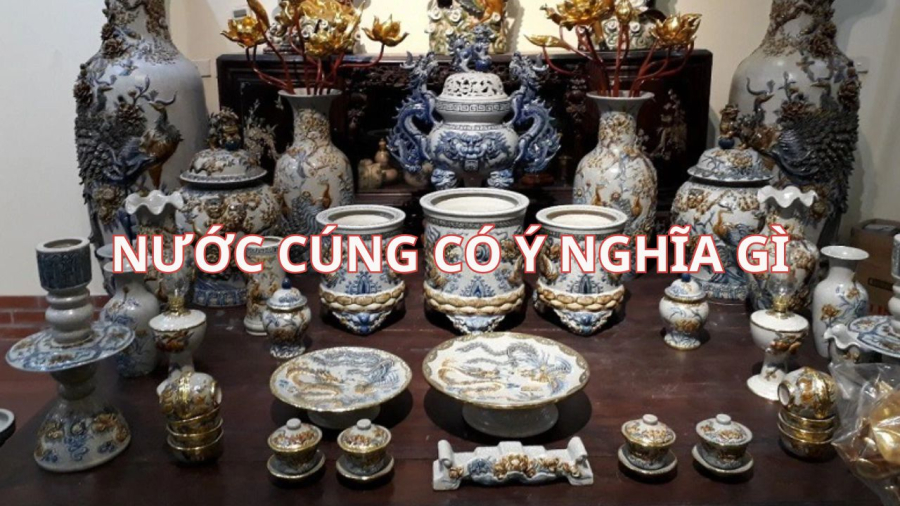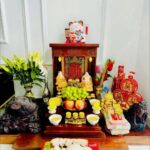The Significance of Water
In feng shui, water plays a crucial role, symbolizing wealth and abundance. Offering water as a tribute expresses a desire for prosperity. Water is also a beverage offered by the host to their ancestors and deities. It is further used for reflection, encouraging introspection and self-improvement when presented at a Buddhist altar.
Water is indispensable in the cultural context of worship. Eastern cultures, particularly those influenced by the five elements theory of wood, metal, water, fire, and earth, consider water as one of the fundamental components on any altar. While each element holds significance, water, earth, and fire are the most vital for sustaining human life.

The Importance of Pure Water in Rituals
Why Offer Still Water Instead of Tea, Coffee, or Soda?
On an altar, water is typically presented in a water set or individual cups/bowls. Families may opt for either option, and additional bottles or cans of water can be included during rituals, usually placed behind the incense burner alongside the water set or cups at the front. The water in these vessels is specifically offered as a tribute.

The Preference for Pure Water
The choice between a water set, cups, or bowls depends on the altar setup and the family’s preferences, with no impact on feng shui. Regardless of the container, the significance remains the same. Typically, we use still water or tap water (referred to as “white water” in some regions, indicating its purity and lack of added flavors or colors found in beverages like alcohol, soda, tea, or coffee). Still water or tap water embodies the true nature of the water element. Additionally, it is believed that spirits consume tap water, reinforcing its use during rituals. Thus, when offering tributes to ancestors and deities, tap water is considered more appropriate than boiled and cooled water.
In the past, families would use water from rainwater cisterns or wells for rituals, whereas today, tap water from faucets is commonly used. In Buddhist practices, water must be pure and clean to facilitate reflection and self-improvement. Therefore, when making offerings, it is essential to use filtered or still water. However, in the context of ancestral worship, some individuals may choose to offer additional foods or beverages that their ancestors enjoyed during their lifetime. For instance, if the deceased favored tea or coffee, these beverages might be included alongside the offering of still water, depending on the family’s devotion and attention to detail. Nonetheless, the presence of still water (filtered or tap) remains non-negotiable, akin to how a glass of plain water is customarily served alongside tea or coffee when entertaining guests.
While still water is acceptable for rituals, it must be clean and from a reliable source, not contaminated or of unknown origin.
Reference for contemplation
The Ultimate Guide to Feng Shui Trees for Wood Element: Enhancing Your Home, Your Style, and Inviting Prosperity
Are you a believer in the power of Feng Shui and seeking plants that will bring good fortune and prosperity? Do you wish to transform your living space into a vibrant and refreshing oasis? Then look no further than these carefully curated Feng Shui plants that are sure to bring positive energy and harmony to your home or office.
The Healing Power of Wormwood: Unveiling the Ancient Wisdom of This Herbal Plant
Absinthe, or as some may call it, the “Green Fairy”, is a mystical herb with a long history of use in traditional medicine and cultural rituals. This humble yet powerful plant, known scientifically as Artemisia Absinthium, has captured the fascination of many with its alleged magical properties and distinctive bitter flavor. In ancient times, it was believed that planting absinthe in front of one’s home brought good fortune and warded off evil spirits. Today, it continues to captivate imaginations and inspire culinary creations and artisanal beverages.





































